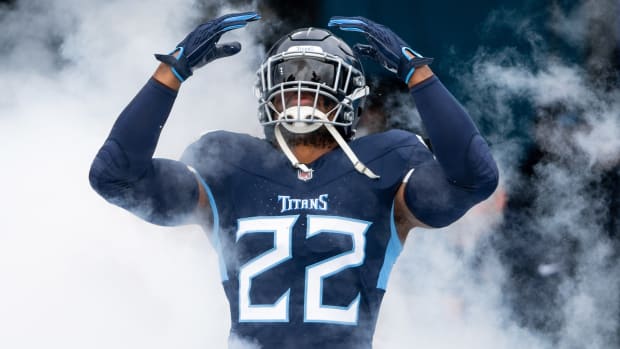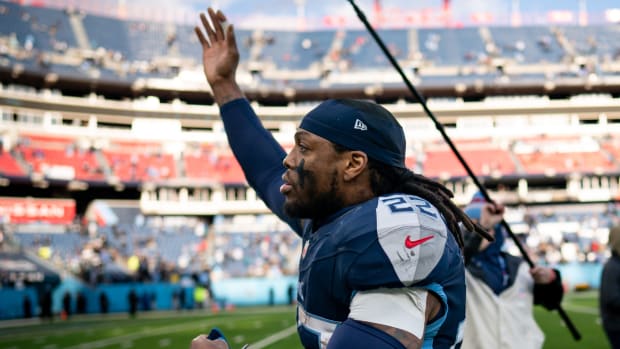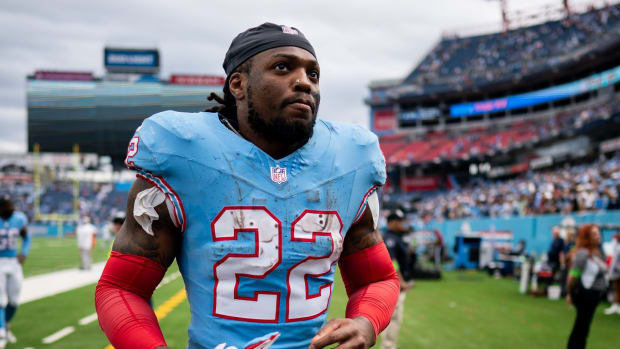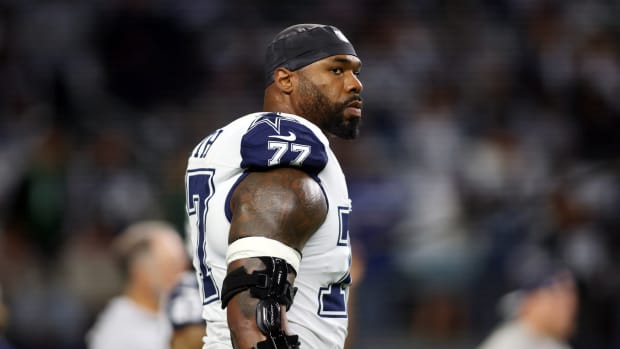Titans: No Plans To Kneel -- Yet
NASHVILLE – It took Ryan Tannehill a little time, but he eventually got behind the idea of NFL players kneeling during the national anthem.
Then, he was a quarterback for the Miami Dolphins and one of his teammates, wide receiver Kenny Stills, was one of the league’s most passionate and outspoken players on the matter. Personal conversations between the two helped Tannehill to get past the shocking nature of the gesture and to adopt a broader view of the movement.
“A protest has to be able to get attention, spark conversation and inspire change,” Tannehill said during a video press conference Wednesday. “I think I had to get past the fact that it wasn’t about the flag. It wasn’t about the anthem. It wasn’t about our country. It was about the injustice and raising awareness and getting peoples’ attention. I think once I got past that fact, I could really support it.”
With that in mind, Tannehill, now the starting quarterback for the Tennessee Titans, expects to lend his full support to any public protest at games this fall – whatever form that may take.
Tannehill was one of three Titans players who met with the media Wednesday and all three said that recent virtual team meetings have included plenty of meaningful conversation about the recent death of George Floyd while in the custody of Minneapolis police and the subsequent demonstrations that have taken place across the country and the world.
Each also indicated that there has been no serious discussion about whether the Titans collectively will take a knee or do something else to keep the issue of racial injustice front and center in the national dialogue. Others around the league have said they have much more clarity about their plans.
“The fact that the conversation is being shifted a little bit toward how we’re going to be protesting and different things like that, it just shifts the conversation from what is the issue and what is the thing we really need to be focused on, which is the racial injustice,” safety Kevin Byard said. “… I’m sure, when the time comes, us as a team, we’ll make a decision as a team.”
Former San Francisco quarterback Colin Kaepernick was the first to take a knee during the national anthem. He initially sat on the bench while the Star Spangled Banner was played or sung but changed his approach following a conversation with a former U.S. Army Green Beret, who was a player in the NFL at the time.
The practice remained prominent through the next season, and in a Sept. 24, 2017 game between the Titans and Seattle Seahawks at Nissan Stadium, in reaction to comments from President Donald Trump, all the players from both teams remained in the locker room during the anthem (pictured). Meghan Linsey, the singer who delivered the anthem, took a knee when she concluded her performance.
For the rest of the season, Titans management and coaches requested that players not take a knee. Instead, they encouraged those who wished to do so to remain in the locker room until the anthem was completed. Wide receiver Rishard Matthews, whose father spent more than two decades in the U.S. Marine Corps and whose brother died in military service, was the one who routinely chose that course of action.
“(T)here are fans that watch us and there are kids that watch us and every move we make,” linebacker Rashaan Evans said. “By us not bringing light to that, that could be something that could be detrimental to a younger guy that may feel some type of way and think that they don’t really know or understand what that (George Floyd) situation was, what happened, why it happened.
“But for their favorite player to be able to speak on it and kind of bring it back to terms or something they could understand, I think it would be a beautiful thing for the NFL players to be able to put some type of input to … at least ease the things that have been going on.”
That, they note, is the point. It is important to extend the conversation and advance the issue in a positive direction.
“Obviously, this is not a short-lived awareness thing,” Tannehill said. “This is something that is going to have to go on for a long time to get to where we need to be with justice and equality. I’m not sure what that’s going to look like this fall. I’m sure I’ll have a lot of conversations with teammates around me, guys that I love and trust. And we’ll come to the best decision possible.”




